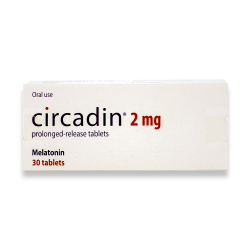View all treatments
- Review by a qualified doctor
- Including prescription
- Next-day delivery included
What Is Jet Lag?
Jet lag is a temporary condition characterised by disrupted sleep, fatigue, and disorientation. It is caused by travelling through different time zones at a rapid pace.
What causes jet lag?
When you cross multiple time zones, you disrupt your body's circadian rhythm. Often referred to as your internal clock, your circadian rhythm regulates a roughly 24-hour cycle of physical, mental, and behavioural processes. It responds primarily to the pattern of light and darkness in your environment, and affects everything from digestion to blood pressure.
Your circadian rhythm helps to control when you wake up and when you fall asleep. When you travel across time zones, your circadian rhythm can't adjust as quickly as you've travelled. This causes jet lag, as your internal clock is still set to the time zone you came from, not the time zone you're currently in. Until your internal clock adjusts to its new time zone, you may be affected by the symptoms of jet lag.
What are the symptoms of jet lag?
Jet lag's main symptoms are excessive sleepiness, daytime fatigue, and a disturbed sleep pattern. Other symptoms include gastrointestinal problems, disorientation, irritability, dizziness, headaches, and a general unwell feeling.
Symptoms may vary from person to person. They usually last no more than one or two days, but may last longer depending on how far you've travelled, how many time zones you've crossed, and what direction you've flown in. Dehydration, stress, and old age can also increase the likelihood and severity of jet lag.
How can I recover from jet lag?
Jet lag is not a serious condition, but it can make it difficult to adjust to your new destination. Several tips can help to speed up recovery, such as spending time outside in natural light or avoiding sleeping until the correct time, even if you are tired. Avoiding caffeine and alcohol during and immediately after travel can also help, as they may dehydrate the body and affect sleep patterns.
What medication treats jet lag?
Some travellers also find using the medication Melatonin helpful. Melatonin is a natural hormone created by the brain's pineal gland. It helps to signal to your body that it is time to sleep, causing you to feel drowsy. When jet lag disrupts your body clock, it can also disrupt the hormone's production. Our medication makes up for this disruption and regulates your sleep pattern. This allows you to more easily adjust to your new routine after you've travelled.
121doc offers Melatonin which can be safely used for those who travel regularly. Additionally, it has very mild side effects.
FAQs
Our consultations include general questions about your health (e.g. blood pressure levels, current and past conditions), as well as specific questions related to your selected treatment. We will also request relevant personal information to complete payment and delivery.
All questions are necessary, and your answers and details will not be shared with any third-parties. Only our doctors have access to your medical information.


